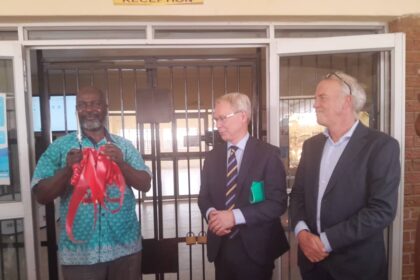Nothing Will Stop 2023 Elections: Analysts #ElectionsZW
By Samuel Tumba
It is highly unlikely that Zimbabwe’s 2023 general elections will be called off despite attempts by some opposition parties to defer the polls, analysts have said.
The election date remains unknown following a court challenge brought by the Movement for Democratic Change MDC-T leader Douglas Mwonzora, who wants elections to be postponed paving the way for a fresh delimitation exercise. Mwonzora argues that the delimitation process by the Zimbabwe Electoral Commission (ZEC) was marred with irregularities.
President Emmerson Mnangagwa says he expects to proclaim the date for the elections at the end of May.
However, analysts feel that only natural disasters or unforeseen events such as the COVID-19 pandemic are the only possible causes for the postponement of the election.
Writing on his blog, Pres 1 Times Dr Philani Zamchiya says not even Mwonzora’s court challenge will stop elections.
“It is highly unlikely that a general election due between 20 and 26 August 2023 will be called off barring unforeseen events such as an earthquake, a disease outbreak like COVID-19, or civil war. I do not even think that the court case challenging the validity of the delimitation report and seeking to postpone the election will succeed. Never mind that constitutionally, there is no explicit provision for the postponement of elections. This is not because of the court case’s merits or lack thereof,” writes Dr Zamchiya.
A legal think tank, Veritas Zimbabwe doubts that the Constitutional Court (ConCourt) will order the postponement of this year’s general elections after MDC-T leader Douglas Mwonzora mounted a fresh court challenge.
“Whether the Court will order a postponement of the elections is doubtful because there is nothing in the Constitution or the Electoral Act expressly giving the Court power to make such an order,” said Veritas in its Election Watch series.
Political commentator, Vivid Gwede is of the view that postponing elections is likely to spark a constitutional crisis.
“The consequence of delaying elections is that the country would be in a few months from now saddled with a leadership whose mandate expired, now due to be renewed or revoked. Thus, sparking a constitutional crisis, said Gwede.
The country has been religiously holding elections since 1980 and analysts believe 2023 will be no different.
“One needs to understand the nature of the post-colonial Zimbabwean state and its politics to appreciate why the election is most likely not be postponed. Zimbabwe has held regular general elections when constitutionally required to since the end of colonial rule in 1980,” said Dr Zamchiya adding that the country is heading to a snap election.
Said Dr Zamchiya “However, based on political praxis, the proclamation to set the election date is likely to be in the week of 29 May to 2 June 2023 again allow a very small margin of error. Any proclamation in late June to July, though legal, will politically cast the poll as a ‘snap election’. A snap election is one that is called suddenly and without a long political campaign period. Some authoritarian leaders use a snap election to ambush the opposition. I also do not foresee a late proclamation because can trigger a crisis or shambolic election given financial and logistical demands for a harmonised election and ZEC’s state of unpreparedness.”
Going forward, Dr. Zamchiya says, “ It is good for electoral democracy for the election date to be clearly stated in the law so as to minimise manipulations and ambush by the political incumbent. For now, we are saved by the delimitation exercise and our reading of the politics to know that the general election must happen between the 20th and the 26th of August 2023.”
#ElectionsZW



